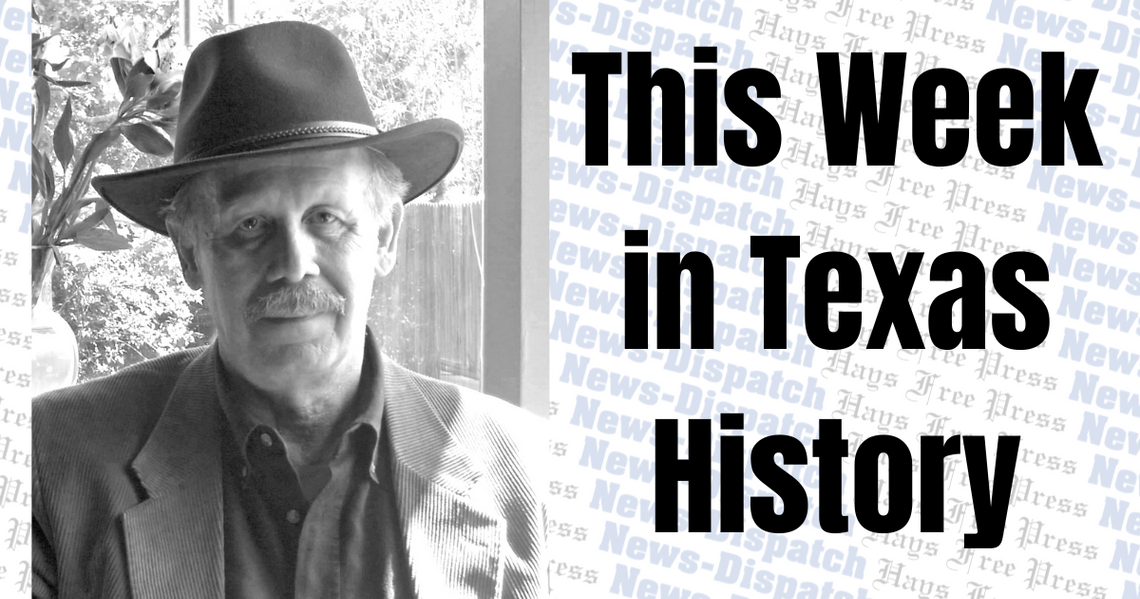Was Eunice Gray, who burned to death in a Jan. 26, 1962 fire that destroyed the Fort Worth hotel she had run for the past four decades, in reality the woman of western mystery known as Etta Place?
Yes, she could have been the widow of Harry Longabaugh, the Old West outlaw known as “The Sundance Kid.” For the better part of a century, Gray has been considered the leading candidate, but other promising contenders, each with her own devoted sponsor, continue to nip at her heels.
Most of what the public knows about Etta Place comes from the 1969 motion picture Butch Cassidy and the Sundance Kid starring Paul Newman and Robert Redford with Katherine Ross as the love interest. Fortunately screenwriter William Goldman and director George Roy Hill stuck to the facts, sparse as they were, in making one of the most popular westerns of all-time.
Those facts tell the following story: Sometime in 1899 or 1900, Harry Longabaugh met a young woman in her early twenties in Fort Worth or San Antonio, Texas towns he frequented between train robberies and other crimes. She was strikingly attractive, as the two confirmed photographs of her clearly show, well-educated and “refined,” a word nearly everyone used to describe her.
The future “Etta Place” was working as a housekeeper, schoolteacher or prostitute in Fannie Porter’s notorious brothel in the Alamo City. Scriptwriter Goldman went with the second occupation because she did not show the telltale signs of premature aging and dissipation so common in the sex trade.
The couple married in December 1900 with the groom using his favorite alias “Harry A. Place.” (“Place” was his mother’s maiden name.) Although no marriage certificate has ever surfaced, the bride did sign her name in a hotel register as “Ethel Place,” thereby providing the evidence that was the name she went by.
We have the Pinkerton Detective Agency to thank for the confusing name change. After calling her everything from “Eva” to “Rita,” the turn-of-the-century bloodhounds chose “Etta” for their wanted posters.
A month after tying the matrimonial knot, the newlyweds went back east. Longabaugh introduced his new wife to his parents in rural Pennsylvania before taking “Ethel” on an extended sightseeing tour of New York City.
Butch Cassidy (Robert Leroy Parker) joined them, and on Feb. 20, 1901 the trio set sail on the Herminius for Argentina. They bought 15,000 acres in the central part of the South American country, stocked it with cattle and began their new lives as respectable ranchers far from the pursuing Pinkertons.
While Butch was happy to hang around the ranch, Harry and Ethel could not resist two risky return trips to the U.S. For four months in 1902 and again in the summer of 1904, the restless expatriates roamed their native land like foreign tourists.
The Pinkertons picked up their trail at the St. Louis World Fair but botched a perfect opportunity to nab them. The same thing happened in Argentina. After higher authorities issued a warrant for their arrest, a sympathetic sheriff tipped off the likable Butch and the three fugitives took a tramp steamer across a huge lake to Chile.
Failing to learn their lesson from that close call, Butch, Sundance and Ethel slipped back into Argentina for the Dec. 19, 1904 hold-up of the bank at Mercedes.
That was Ethel’s first armed robbery and her last.
This time the posse proved to be particularly stubborn chasing the Americanos all the way to the Andes on the border with Chile. They made good their escape only by squeezing through a snowbound pass at an altitude of 13,000 feet.
That was the last straw for Ethel. She dearly loved her handsome outlaw but not enough to die with him. At her insistence, Harry escorted his wife by ocean liner to San Francisco, and it was in “The City By The Bay” they said their final goodbyes in 1906.
Two years later in November 1908, the story of Butch and Sundance ended exactly as Ethel feared it would. The most-wanted exiles were no match for the Bolivian army.
The Pinkertons looked high and low for Harry Longabaugh’s widow but had nothing more than rumors and uncorroborated sightings to go on. In the 1920’s, the overrated detectives lost interest in the case and gave up the search.
In what may have been an unguarded moment, Eunice Gray, a well-known hotel proprietor, once told a local newspaper reporter, “I’ve lived in Fort Worth since 1901. That is except for the time I had to hightail it out of town. Went to South America for a few years until things settled down.”
That revelation sparked speculation that Gray was none other than “Etta Place.” Then in 2007 an amateur researcher dug up a photograph of her taken in her younger days. But when compared to the image of the widow Longabaugh at the same age, it is plain as day that the two women looked nothing alike.
“Murder Most Texan” is a must read for fans of true crime and Texas history. Order your copy for $24.00 by mailing a check to Bartee Haile, P.O. Box 130011, Spring, TX 77393.










